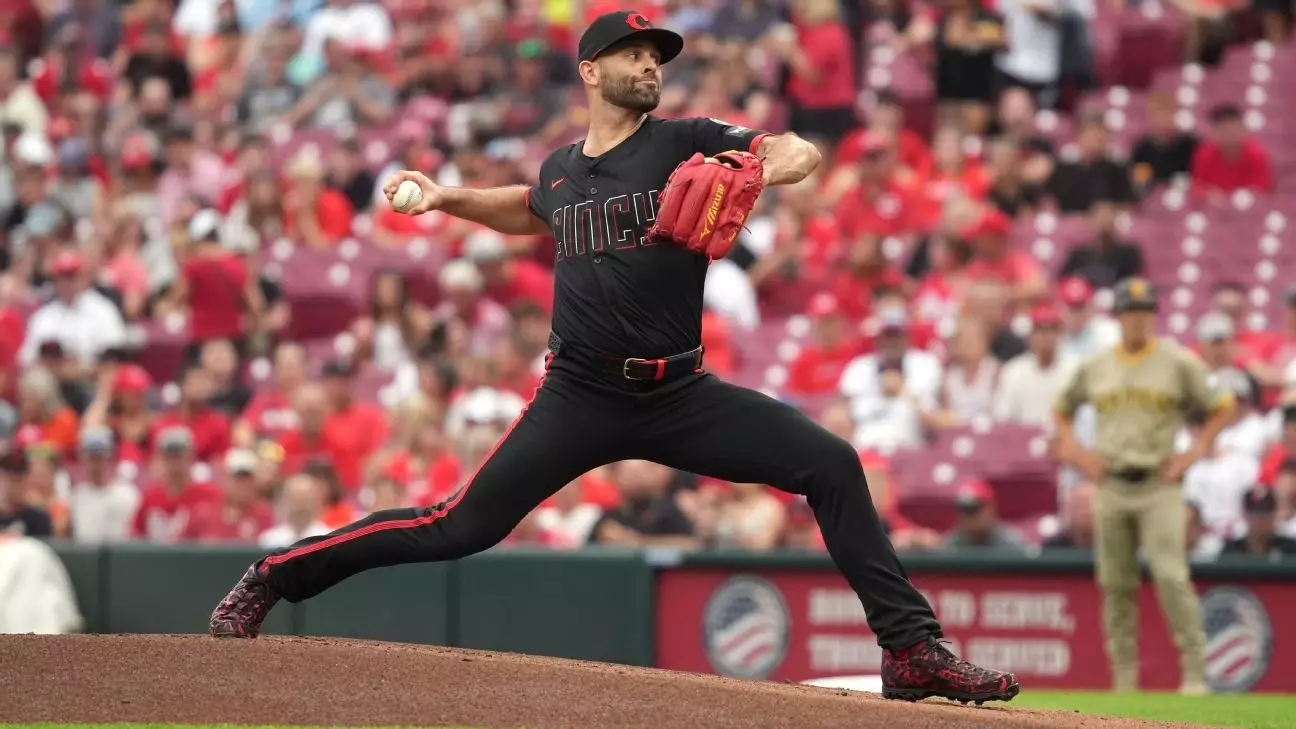Few moments in sports disappoint quite like coming tantalizingly close to history, only to fall just short. Such was the case for the Cincinnati Reds on a Friday night that promised greatness but ultimately delivered a bittersweet reminder of how elusive perfection can be. Nick Martinez, a pitcher whose recent struggles made him an unlikely hero, carried the weight of nearly throwing a no-hitter, while Spencer Steer flirted with the rare and remarkable feat of hitting four home runs in a single game. Their combined efforts electrified Great American Ball Park but left fans and players alike with a palpable sense of “what if.” This wasn’t just a baseball game—it was a portrait of human striving, humility, and the fine line between legend and footnote.
Nick Martinez: Redemption Denied but Promise Rekindled
Martinez’s performance stood out not just for the near no-hit bid but for what it symbolized. The 34-year-old had been struggling earlier in the season, his last start a disaster that saw him surrender seven earned runs in less than three innings. This rough patch, however, seemed to catalyze a quiet transformation. Shifting temporarily to relief pitching, Martinez simplified and refocused his approach—a shift that paid dividends Friday night as he dominated the Padres, retiring 22 batters in a row and flirting with history until a ninth-inning double shattered the dream.
This near-miss felt like a vindication of perseverance and adaptability, traits often overlooked in baseball’s star-driven narrative. Martinez isn’t a household name, nor does he occupy highlight reels every week, but his journey underscored that greatness often dwells in the shadows, waiting for its moment. The Reds manager’s acknowledgment of Martinez’s deserved moment hints at a broader truth in sports and life: good things do happen to good people, but only if they refuse to stop trying.
Spencer Steer and the Power of Humility Amid Glory
Parallel to Martinez’s pitching masterpiece was Spencer Steer’s thunderous assault on the Padres’ pitching staff. With three home runs already in the bag by the eighth inning, Steer had the crowd on its feet envisioning a feat so rare even the Reds franchise had witnessed it only once before in recent memory. Yet Steer’s reaction to this near-historic night was as remarkable as his performance. Unlike many athletes who bask in their achievements, Steer shrank from the spotlight, declining the crowd’s urge for a curtain call out of sincere modesty.
This humility—in a sport often characterized by bravado and showmanship—felt refreshing, even inspiring. It also speaks to a more mature, grounded ethos in professional sports, where self-awareness and team-first attitudes are sometimes overshadowed. Steer’s humorous comment about his poor golf game the previous day further humanizes him, reminding fans that athletes are not infallible magic machines but individuals with lives and moods beyond the diamond.
The Reds’ Night: A Tale of What Could Have Been
The coincidence of nearly witnessing a no-hitter and a four-homer game in the same event was a tantalizing spectacle that almost transcended baseball history. Perhaps the most striking element of this story is how two individual performances, each extraordinary in its own right, converged on a single night yet stopped just shy of the extraordinary mark. The rarity of these feats highlights the unpredictable magic of baseball, a sport where the improbable remains possible until the final pitch or swing.
This game serves as a vivid metaphor for the broader human experience—how dreams often hover frustratingly close, how excellence is as much about the journey and effort as the final result, and how sometimes the near misses are what resonate most deeply. The Reds didn’t make history Friday night, but they reminded us why we watch, cheer, and hope. Moments like these are bittersweet exactly because they are so rare and so close to greatness.
Why Nearly Making History Is Still Worth Celebrating
In a cultural moment that often rewards only final outcomes and records, the Reds’ near-historic night invites a more nuanced appreciation. It underscores that sports can teach us resilience, grace in defeat, and the humility to accept our limits while still fighting fiercely. Martinez’s and Steer’s performances also challenge the relentless pursuit of perfection, suggesting instead that there is value in excellence that falls short of the record books.
From a center-wing liberal perspective, the glorification of mere success overlooks the human context—how effort, intention, and character shape the narrative as much as the box score. Fans craving heroic, flawless moments would do well to celebrate these near-misses, which are often more telling about the spirit of the game and its players. In the end, the Reds’ night is a reminder that in both sports and society, heroism often lies not in unblemished triumph but in the persistent pursuit of greatness with humility and heart.



Leave a Reply